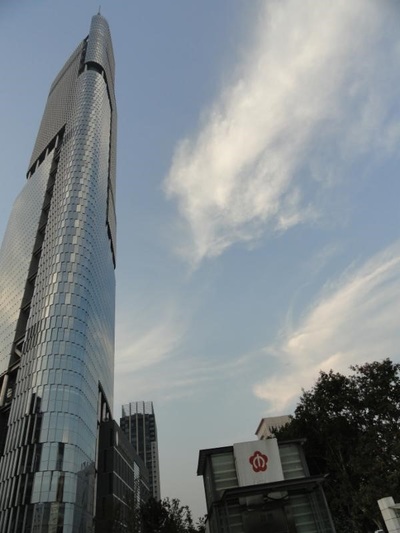 科罗拉多州和中国的交流日益热络了,南丹佛经济发展协进会在它们十二月号的通讯里有一段介绍中国南京的文章,为南丹佛的产业界介绍南京的环境,教育和经济,而这一篇文章也将会被翻译成中文在南京市政府网站刊登。南京市政府也会协助南丹佛经济发展协进会建立该会的互联网网站的中文版。以下是该文章全文,和大家分享。 “A Tale of Two Cities: Nanjing and Denver“ Located between the 30th and 40th parallel of the northern hemisphere, Nanjing, the capital city of Jiangsu province, and Denver, capital city of Colorado state, have many commonalities. For example, residents of these cities are fortunate in that they may experience four unique seasons every year. When looking beyond those geographic similarities, and looking past political and philosophical differences between the US and China, we can see that Denver and Nanjing hold much more in common. Outdoor Lifestyle One thing immediately noticeable when exiting either city's international airports is that both are part of regions that share a strong appreciation for nature and outdoor activity. The Purple Mountain in Nanjing provides easy access to hiking. In Colorado, most of Metro Denver is situated within an hour or so drive from the majestic Rocky Mountains. Importantly, both cities feature tree-lined roads and plenty of parks and green spaces. Education Within China, Nanjing is considered to be a top city for higher education. There are fifty-four universities and colleges in the city, with a total student number of 800,000, including 100,000 postgraduate students. When looking at the ratio of university students per 10,000 people, Nanjing ranks first in the country. The universities located in Denver's downtown area provide an appetizing educational menu, as well. Among the well-known schools are the University of Denver, University of Colorado-Denver, Anschutz Medical Campus, Metropolitan State University, and the Colorado School of Mines, as well as several community colleges. Economy At roughly 8.2 million people, Nanjing holds a much higher population density than the approximately three million people who make their home in the Metro Denver region. In 2014, Nanjing's per capita income of about $16,800 placed it among China's wealthiest 20 cities. Likewise, the average urban resident's disposable income of just over $6,600 is almost 1.5 times higher than the national average. In the well-developed Denver South region of Colorado, the median household income exceeds $90,000, which is about 54% higher than the statewide figure. As the capital cities of their respective states / provinces, both places are supported by robust economies. Some of the core industries in Denver include bioscience, energy, and information technology and software. The traditional pillar industries in Nanjing are electronics, petro chemical, iron & steel, and automotive. In recent years, the city has also witnessed increased growth in some emerging industries like ICT & software, biomedicine and bio-agriculture, energy conservation and environmental protection, high-end equipment manufacturing, smart power grids, and new energy vehicles. The three categories discussed above are just some of the similarities held by Nanjing and Denver. While separated by 6,700 miles, different cultural and historical backgrounds, the common ground shared by these two cities should make it easier to exchange business, tourism, and educational experiences. -Sean Doherty is a Colorado native and graduate of Metropolitan State University, living and working in the Shanghai to Nanjing area of China. Sean represents the Denver South Economic Development Partnership as the Greater China Exchange Coordinator, focused on fostering the exchange of ideas, strategies, and talent between China and the metro-Denver area. He can be reached at [email protected] -Ray Xie is Principal Staff Member of the Foreign Affairs Office of Nanjing Municipal People's Government. She is positioned on the American and Oceanian Affairs Division. Ray has been a part of several trips to the United States and has been responsible for the hosting of hundreds of international representatives on visits to Nanjing. Her efforts focus on helping local government agencies, industrial and high-tech parks, and educational institutions establish and nurture partnerships with international counterparts and businesses. Comments are closed.
|
Archives
July 2024
|
此网页所有版权为丹佛华人资讯网所有。 有对网页有关的问题请于[email protected]联络网页编辑






















































































































 RSS Feed
RSS Feed

